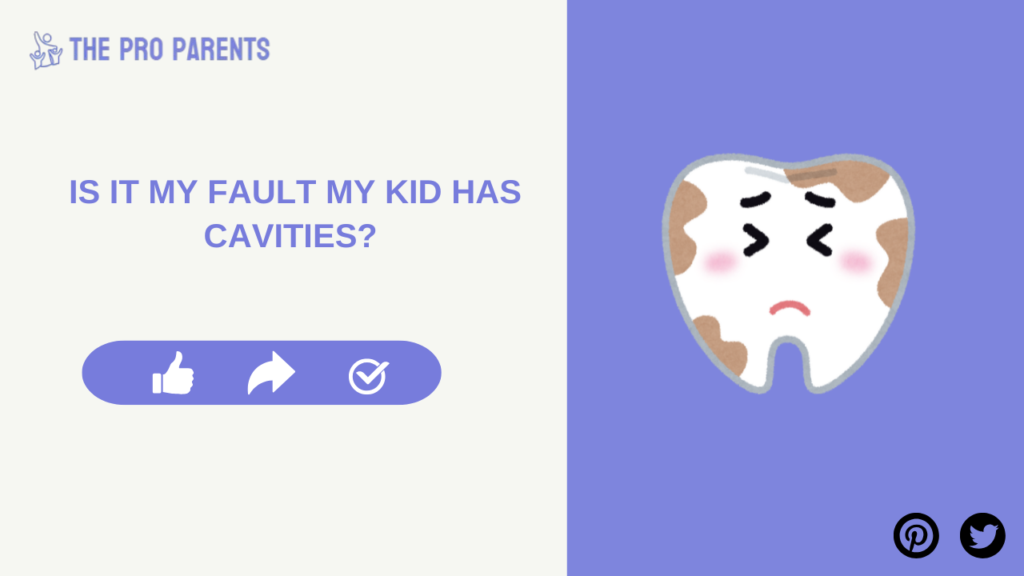Every pro parent wants to give their children the best possible start, from ensuring they eat nutritious food to teaching them good habits. However, when the dentist mentions cavities, many parents ask, “Is it my fault my kid has cavities?” It’s a question that can stir up feelings of guilt, especially when parents have tried their best to take care of their child’s teeth. But the truth is that cavities are caused by various factors, many of which are beyond your control. While your role in their oral health is crucial, it’s essential to understand that cavities are a common concern among children and result from complex interactions between diet, hygiene, genetics, and lifestyle.
This guide will delve into what cavities are, how they form, and the key causes behind them. We’ll also discuss your role as a parent in preventing them and practical steps you can take to protect your child’s smile. Moreover, we’ll address the emotional aspect, helping you move past feelings of guilt and empowering you with knowledge to take action.
Table of Contents
What Are Cavities?
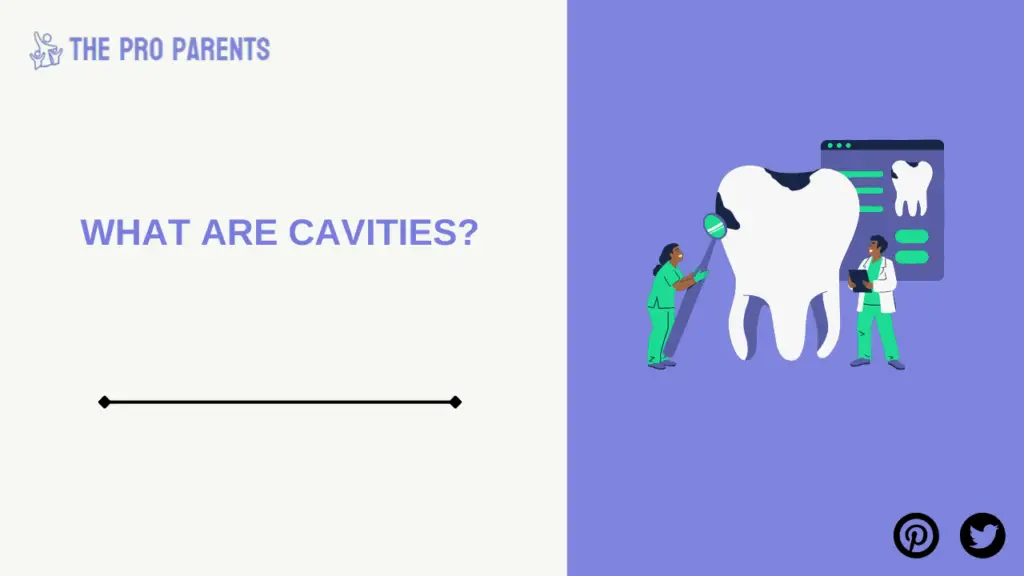
Cavities, or dental caries, are small holes in the teeth caused by decay. They develop when the enamel—the hard, outer surface of the tooth—is worn away by acid produced by bacteria in the mouth. This acid is often the result of food particles, especially sugary ones, left on the teeth. Over time, without proper care, the enamel erodes, and cavities form, leading to discomfort, difficulty eating, and in some cases, serious oral health issues that require treatments like fillings or even crowns.
The good news is that cavities can be prevented with the right habits, and even if your child has cavities, you can make a difference with early intervention and education.
How Do Cavities Form?
Cavities form through a step-by-step process, starting with the buildup of plaque. Plaque is a sticky film of bacteria that forms on teeth after eating or drinking. When sugar in food mixes with plaque, bacteria in the plaque feed on it and produce acid. This acid gradually breaks down the tooth enamel, causing it to demineralize. As the enamel erodes, tiny holes or cavities begin to form. If left untreated, the decay can spread deeper into the tooth, affecting the underlying dentin and even the pulp, which is the soft tissue inside the tooth.
The Stages of Cavities:
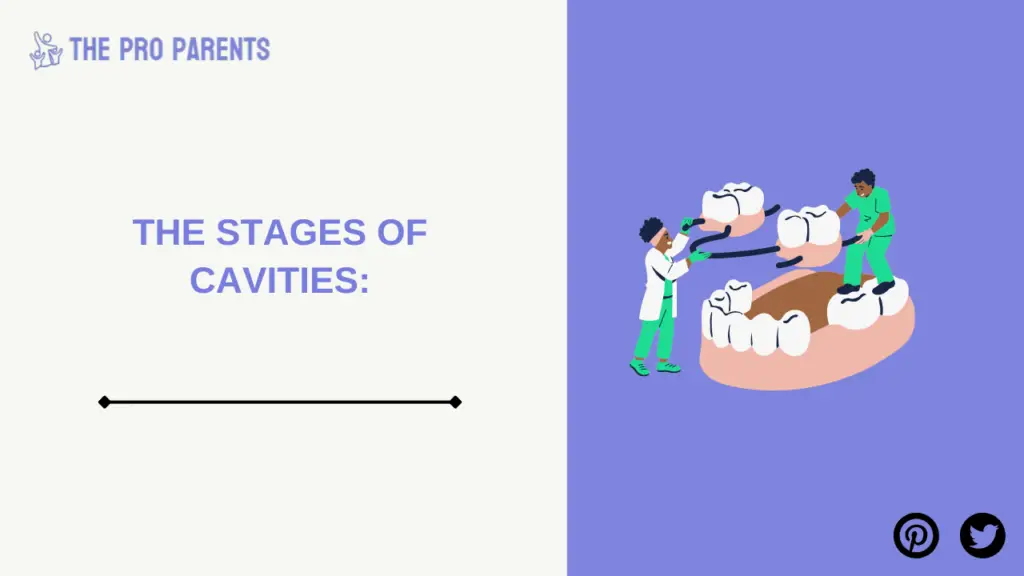
- Demineralization: This is the earliest stage of cavity formation. You may notice tiny white spots on your child’s teeth where enamel is beginning to weaken due to acid exposure.
- Enamel Erosion: As the demineralization process continues, the enamel breaks down, and the dentin beneath it becomes exposed. This may cause increased sensitivity to hot, cold, or sweet foods.
- Advanced Decay: If untreated, the cavity grows larger and deeper, possibly requiring fillings or more complex dental treatments.
Common Causes of Cavities in Children
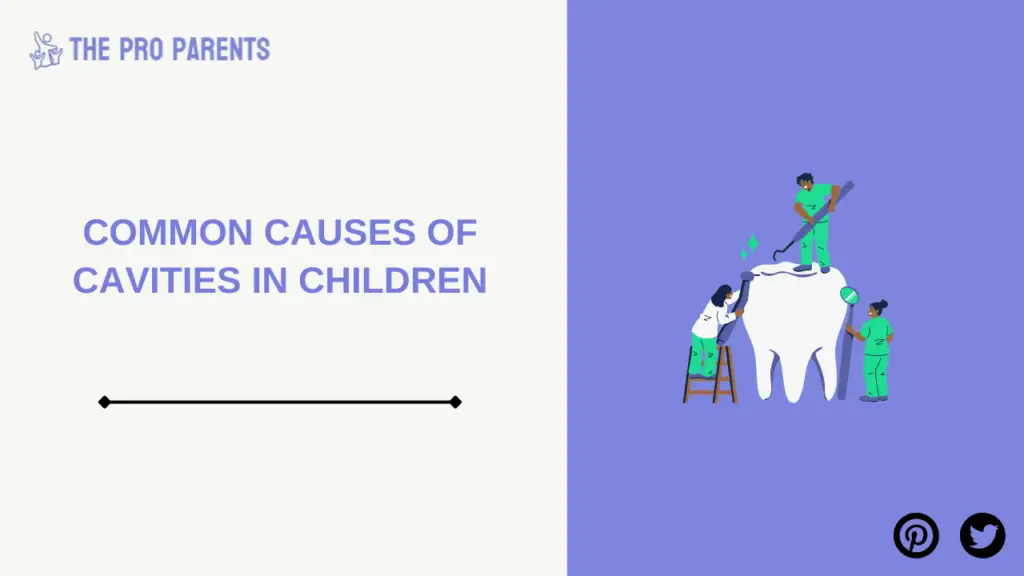
There are several factors that contribute to cavity formation in children. While it may feel overwhelming to consider all the variables, understanding them can help you take a proactive role in your child’s dental health. Some causes are directly related to lifestyle, while others may be influenced by genetics or environmental factors.
1. Diet and Sugar Consumption
The most obvious cause of cavities is the frequent consumption of sugary foods and drinks. Sugar, especially when it’s consumed in large amounts or in sticky forms like candy and syrup, sticks to the teeth and encourages bacterial growth. This leads to the production of acid, which accelerates the enamel erosion process. The more frequently a child eats sugary snacks or drinks, the more opportunities bacteria have to create harmful acid.
What Parents Can Do:
- Limit sugary snacks like candy, cookies, and soda.
- Offer water or milk instead of sugary juices or sports drinks.
- Encourage fruit over sugary processed snacks to satisfy cravings.
2. Poor Oral Hygiene
If a child doesn’t brush and floss regularly, plaque builds up on the teeth and hardens into tartar, making it harder to remove. Left unchecked, plaque leads to tooth decay. Parents play an important role in teaching children how to brush and floss correctly, but it’s also important for parents to supervise young children to ensure that they’re properly cleaning their teeth.
What Parents Can Do:
- Make brushing and flossing a fun and regular part of the day, ideally twice a day.
- Use fluoride toothpaste, as fluoride strengthens tooth enamel.
- Supervise your child’s brushing until they are old enough to do it correctly on their own.
3. Genetics
While you may feel solely responsible for your child’s dental health, genetics can also play a role. Some children are born with teeth that are more prone to cavities due to weaker enamel or more grooves and pits in their teeth. Children with a family history of cavities or other dental issues may have a higher risk of developing cavities themselves.
What Parents Can Do:
- While you can’t change your child’s genetic makeup, you can focus on prevention through good oral hygiene and diet.
- Regular visits to the dentist will help monitor your child’s teeth and identify problems early.
4. Dry Mouth or Lack of Saliva
Saliva is an important factor in maintaining good oral health because it helps wash away food particles and neutralize acids produced by bacteria. Some children may experience dry mouth due to medical conditions, medications, or even mouth breathing, which can reduce the natural cleaning effect of saliva and increase the risk of cavities.
What Parents Can Do:
- Encourage your child to drink water regularly.
- Ask your dentist about saliva-stimulating products or other strategies if your child struggles with dry mouth.
5. Frequent Snacking
When kids snack frequently throughout the day, their teeth are continually exposed to sugar and bacteria, giving the enamel little time to remineralize between meals. This constant acid exposure can increase the likelihood of cavities, especially if snacks are sugary or sticky.
What Parents Can Do:
- Encourage balanced meals with limited snacking.
- Choose tooth-friendly snacks like cheese, vegetables, and nuts.
- Avoid sugary snacks between meals, especially before bed.
The Role of Parents in Preventing Cavities
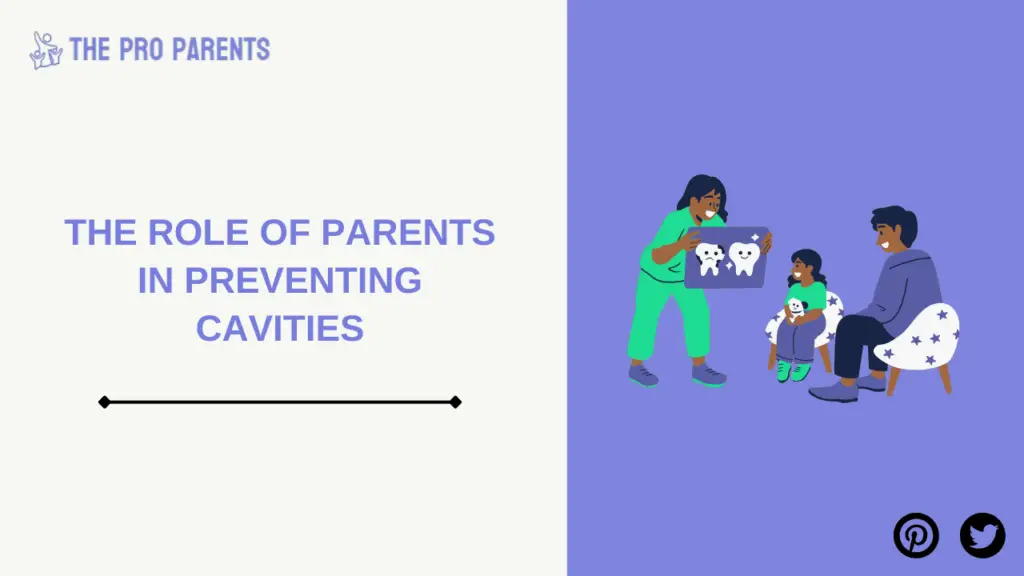
While it’s easy to feel guilty if your child has cavities, it’s important to remember that there’s much you can do to reduce the risk of future decay. Parents play a key role in shaping their child’s oral health habits and providing the right environment for healthy teeth. Here are some practical steps you can take:
1. Teach Proper Brushing and Flossing Habits
Teaching your child to brush their teeth twice a day and floss regularly is the first line of defense against cavities. Use soft-bristled toothbrushes that are age-appropriate and fluoride toothpaste to strengthen the enamel. Make brushing fun with colorful toothbrushes, toothpaste with fun flavors, and interactive apps that turn brushing into a game.
2. Provide Healthy Snack Alternatives
Offering healthier alternatives to sugary snacks can make a big difference. Foods like cheese, yogurt, nuts, and fruits like apples and pears are great choices that won’t contribute to tooth decay. Instead of sugary drinks, offer water, milk, or fluoride-enhanced beverages.
3. Schedule Regular Dental Checkups
Taking your child to the dentist regularly is crucial. Pediatric dentists can monitor your child’s teeth and catch cavities before they become serious. They can also apply preventive treatments like fluoride varnishes or dental sealants that protect the back teeth from decay.
4. Reduce Sugar Intake
Limiting sugar in your child’s diet is one of the most effective ways to prevent cavities. This doesn’t mean completely eliminating treats, but rather offering them less frequently and ensuring that your child brushes their teeth afterward.
Overcoming Guilt: It’s Not All Your Fault
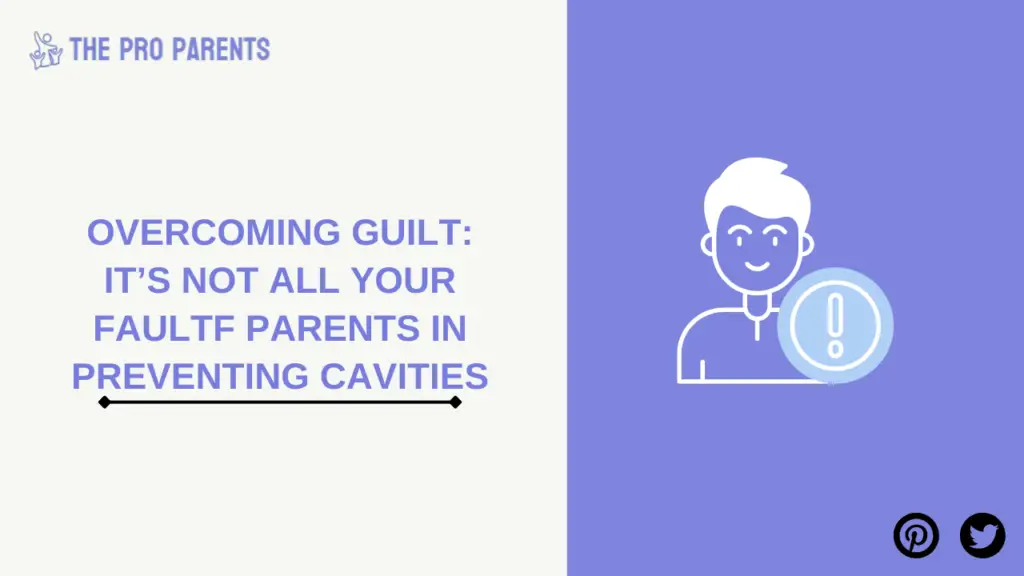
Many parents struggle with feelings of guilt when their child develops cavities. “Is it my fault my kid has cavities?” you may wonder. But the truth is that cavities result from multiple factors, including genetics, diet, and even environmental conditions. It’s important to acknowledge that not everything is within your control.
1. Genetics vs. Lifestyle:
While a parent’s influence is important, factors like genetics and the natural shape of teeth also come into play. Some children are more prone to cavities due to inherited traits, such as softer enamel or more pit and groove areas in their teeth. In these cases, parents should focus on the prevention strategies that are within their control.
2. Stop the Blame Game:
Rather than blaming yourself, focus on how you can prevent future issues. Parents who educate themselves about oral health and commit to regular dental care can significantly reduce the risk of cavities in their children.
Preventive Measures for Healthier Teeth
There are many things you can do to reduce the risk of cavities and promote healthy teeth. The following strategies, combined with regular dental visits, will help ensure your child maintains strong, healthy teeth throughout childhood.
1. Hydration
Keep your child hydrated by encouraging them to drink water regularly. Water helps wash away food particles and bacteria, preventing plaque buildup and tooth decay.
2. Fluoride Use
Fluoride helps to remineralize teeth and make them more resistant to decay. Make sure your child uses fluoride toothpaste and consult your dentist about additional fluoride treatments if needed.
3. Dental Sealants
Dental sealants are thin, protective coatings applied to the back teeth, which are the most likely to develop cavities. These sealants create a barrier that protects the tooth from plaque and bacteria.
By addressing the root causes of cavities and taking proactive steps, parents can significantly reduce the risk of cavities and promote healthier teeth. If you’re wondering whether it’s your fault that your child has cavities, remember that cavities are common and preventable. Focus on building positive dental habits, seek support from dental professionals, and most importantly, embrace the journey of helping your child develop a lifetime of good oral health.
FAQS
Am I bad mom because my child has cavities?
No, cavities are common. As a mom, you’re doing your best. Focus on prevention and care for your child’s dental health moving forward.
Do dentists judge you for having cavities?
Dentists are professionals, not judges. They focus on helping your child, providing advice on preventing further cavities and improving oral health.
Do kids get put under for cavities?
Kids usually don’t need anesthesia for cavities unless it’s a complex procedure. Sedation options are available if necessary, ensuring comfort and care.
Is it normal for kids to get cavities?
Yes, cavities are common in children. Proper care and regular dentist visits help reduce the risk and maintain healthy smiles!
